15 Foods to Avoid for a Healthier Diet
Maintaining a healthy diet is key to feeling your best and supporting long-term well-being. However, certain foods can make it harder to achieve your health goals. These foods are often high in sugar, unhealthy fats, or excessive salt, leading to various health concerns if consumed regularly.
By reducing your intake of these items, you can make healthier choices that benefit your overall lifestyle. Here are 15 foods you should consider cutting back on for a healthier diet.
Sugary Beverages

Sugary beverages like soda, sweetened teas, and flavored juices are packed with added sugars that contribute to weight gain and increase the risk of chronic conditions like diabetes. These drinks provide minimal nutritional value and can lead to spikes in blood sugar levels.
Instead, try switching to water, sparkling water with a splash of lemon, or unsweetened herbal teas. Reducing your consumption of sugary drinks can help you manage your weight and improve overall health. Staying hydrated with healthier options will also help maintain steady energy levels.
Processed Meats
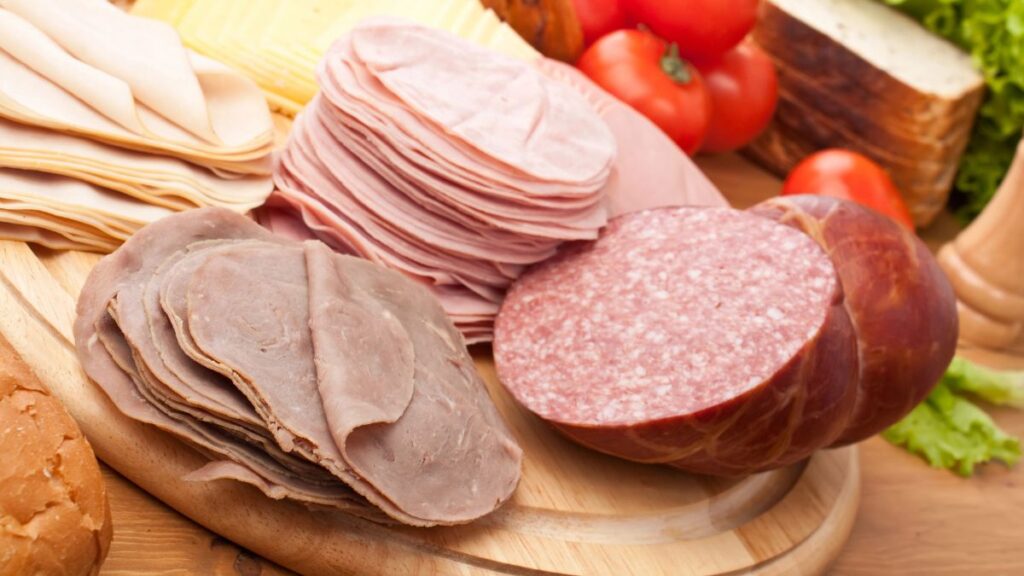
Processed meats, such as bacon, sausages, and deli meats, often contain high levels of sodium, preservatives, and unhealthy fats. These foods have been linked to an increased risk of heart disease, cancer, and other health problems.
Choosing lean, unprocessed meats or plant-based protein sources is a better alternative. Incorporating more whole foods into your diet can provide essential nutrients without the added risks associated with processed meats. Opting for fresh meats and plant-based proteins supports a healthier heart and overall well-being.
Pastries and Sweets

Pastries, cakes, and other sweet treats are often high in sugar, refined flour, and unhealthy fats. Regular consumption can lead to weight gain, tooth decay, and an increased risk of developing metabolic disorders.
For a healthier alternative, consider enjoying fresh fruits, yogurt, or homemade baked goods made with whole grains and less sugar. Limiting your intake of pastries and sweets can help you manage your weight and reduce your risk of chronic health issues. Treating yourself occasionally is fine, but moderation is key to maintaining a balanced diet.
Fast Food

Fast food is typically high in calories, unhealthy fats, sodium, and added sugars. Regularly eating fast food can contribute to obesity, high blood pressure, and other health problems. Opt for home-cooked meals with fresh ingredients, or choose healthier options when dining out, such as salads or grilled items.
Reducing your reliance on fast food can help you control your calorie intake and make more nutritious choices. Preparing meals at home also allows you to control the ingredients and portion sizes, promoting better health.
Packaged Snacks
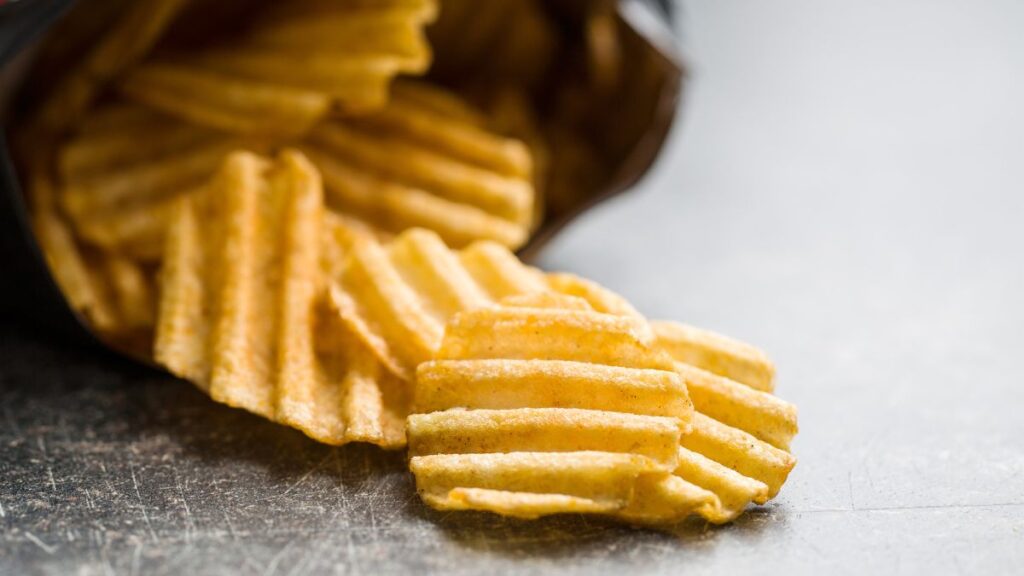
Packaged snacks like chips, crackers, and cookies are often loaded with unhealthy fats, salt, and sugar. These snacks are convenient but can lead to overeating and provide little nutritional value. Instead, opt for healthier snacks like fresh fruits, vegetables with hummus, or nuts.
Reducing your intake of packaged snacks can help you maintain a healthier weight and provide your body with the nutrients it needs. Choosing whole, unprocessed snacks supports better digestion and sustained energy.
White Pasta
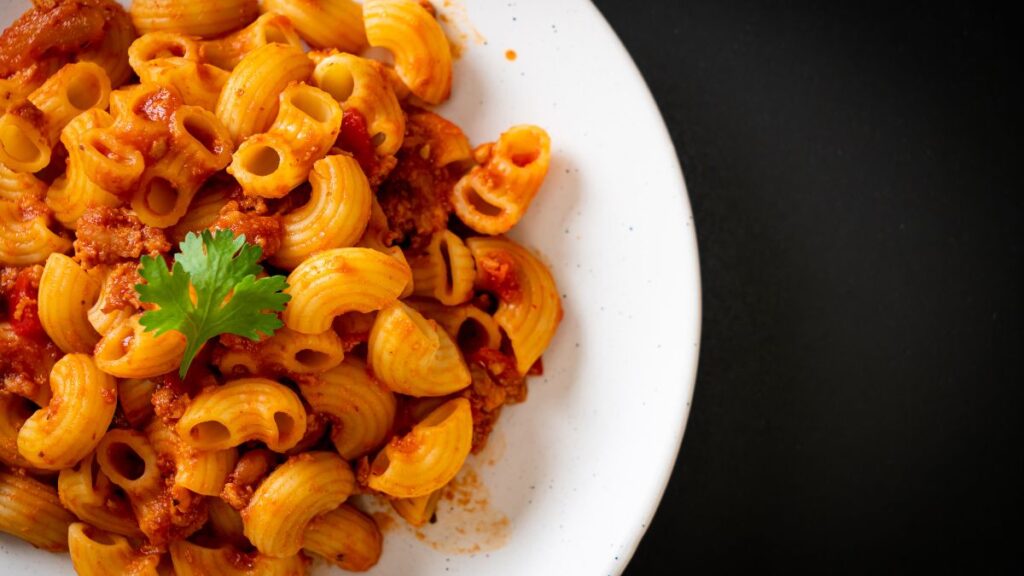
White pasta is made from refined flour, which has been stripped of its fiber and nutrients. Eating white pasta can cause rapid spikes in blood sugar levels, leading to energy crashes and potential weight gain.
Whole-grain pasta, zucchini noodles, or spaghetti squash are healthier alternatives that offer more fiber and nutrients. Making the switch to whole grains can help you feel fuller longer and stabilize your energy throughout the day. Incorporating more fiber-rich foods into your diet supports digestive health and helps prevent overeating.
Sugary Breakfast Items
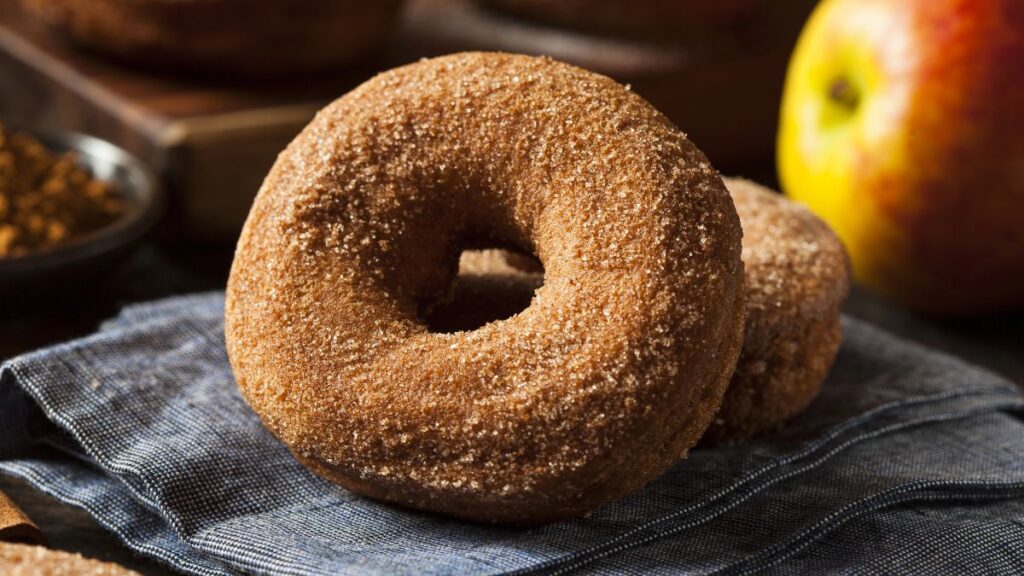
Sugary breakfast items like donuts, pastries, and certain cereals can start your day off with a sugar rush that quickly wears off, leaving you feeling tired and hungry. These foods are often low in protein and fiber, which are essential for sustained energy.
Choosing oatmeal, whole-grain toast with avocado, or Greek yogurt with fruit can provide a more balanced and nutritious start to your day. Reducing sugary breakfast items helps prevent energy crashes and supports better concentration and mood. A balanced breakfast sets the tone for healthier eating throughout the day.
Frozen Meals
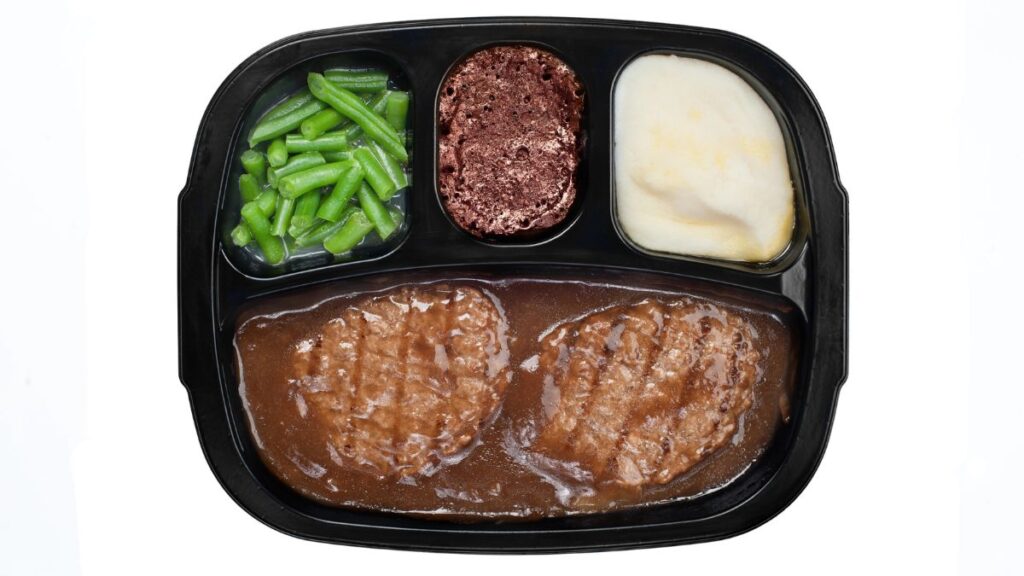
Frozen meals are often high in sodium, unhealthy fats, and preservatives. While they offer convenience, they can contribute to high blood pressure and may lack the nutrients found in fresh meals.
Preparing your own meals from fresh ingredients or choosing healthier frozen options with fewer additives can be a better choice. Limiting your intake of frozen meals supports better heart health and overall wellness. Cooking at home allows you to create meals that are both nutritious and tailored to your taste.
Flavored Yogurts
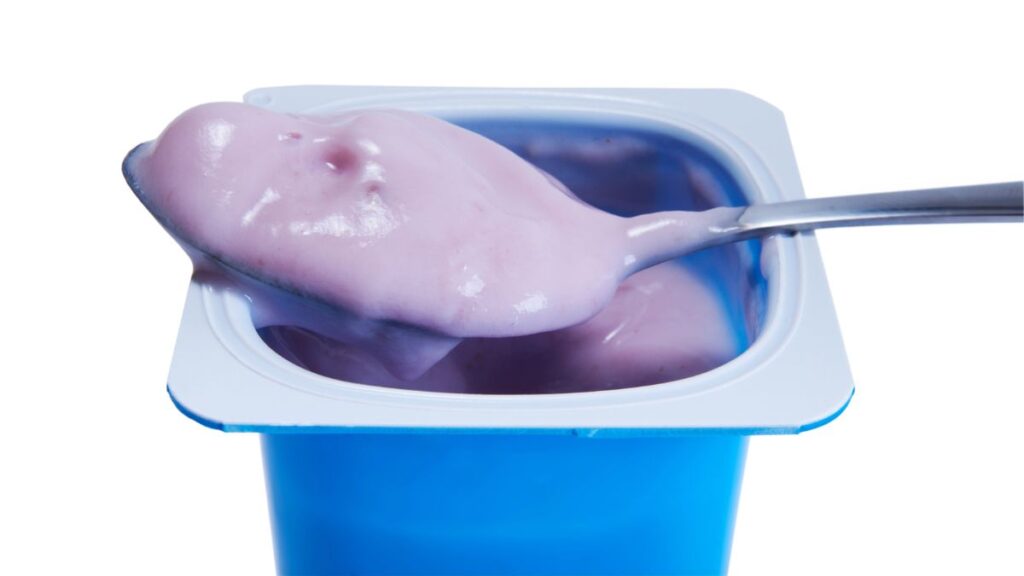
Flavored yogurts often contain added sugars and artificial flavors, which can negate yogurt’s health benefits. These sugary yogurts can contribute to weight gain and increased cravings for sweets.
Opting for plain Greek yogurt and adding fresh fruit or a drizzle of honey is a healthier option that provides probiotics, protein, and fewer sugars. Reducing your consumption of flavored yogurts helps you control your sugar intake and supports better digestive health. Choosing plain yogurt also allows you to customize your snack with healthier toppings.
Energy Bars
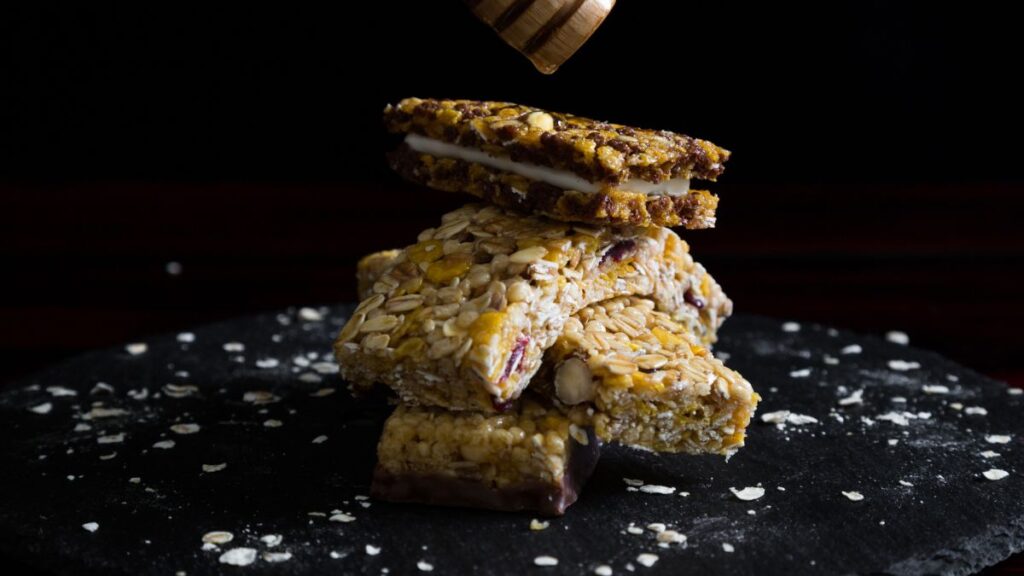
Energy bars may seem like a healthy snack, but many are packed with added sugars, unhealthy fats, and artificial ingredients. These bars can lead to spikes in blood sugar and may not provide the sustained energy you need. Instead, opt for whole foods like nuts, seeds, or homemade energy bites made with natural ingredients.
Limiting energy bars and choosing whole foods can help you maintain stable energy levels and better overall nutrition. Preparing your own snacks ensures you know exactly what’s in them, supporting a cleaner diet.
Full-Fat Dairy Products

Full-fat dairy products like cream, whole milk, and certain cheeses are high in saturated fats, which can contribute to high cholesterol levels and heart disease. Choosing low-fat or non-fat dairy options can provide the same nutrients with less fat.
Plant-based alternatives like almond milk, oat milk, or soy yogurt are also good choices. Reducing your intake of full-fat dairy supports better heart health and helps manage your weight. Incorporating plant-based options adds variety and nutrition to your diet.
Sweetened Coffee Drinks

Sweetened coffee drinks, such as flavored lattes and frappuccinos, can be loaded with sugar, syrup, and whipped cream, making them more like desserts than beverages. These drinks can contribute to weight gain and increased sugar cravings.
Opt for black coffee, or add a splash of milk and a sprinkle of cinnamon for flavor without the extra calories. Cutting back on sweetened coffee drinks can help you reduce your sugar intake and avoid energy crashes. Choosing simpler coffee options supports a more balanced diet and steady energy.
White Rice
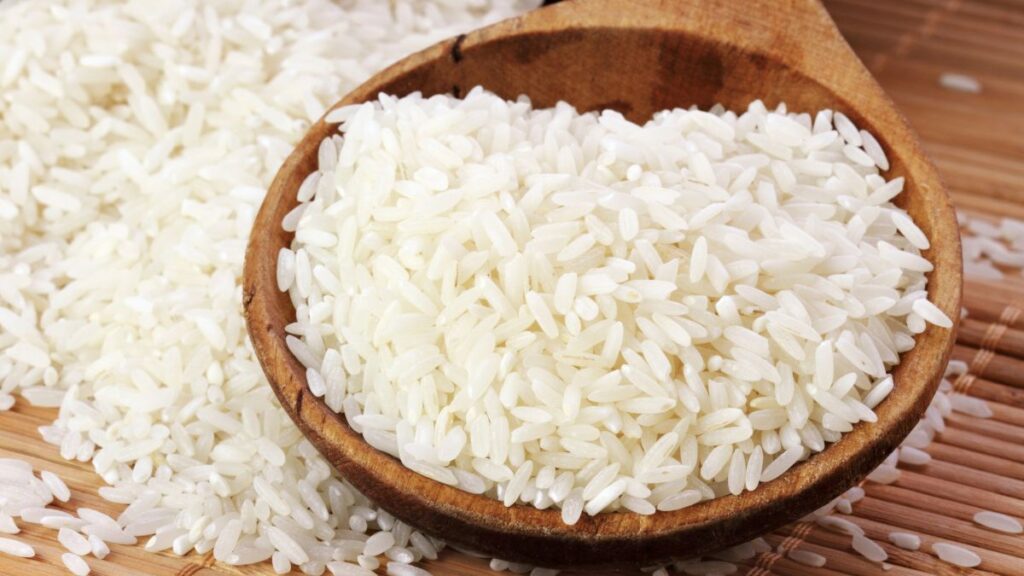
White rice is a refined grain that lacks the fiber and nutrients found in whole grains like brown rice or quinoa. Consuming white rice can cause rapid increases in blood sugar levels, leading to energy dips and potential weight gain.
Whole grains are a better choice, offering more fiber, vitamins, and minerals. Swapping white rice for brown rice, quinoa, or barley can improve your overall nutrition and help maintain stable blood sugar levels. Incorporating more whole grains into your meals supports digestive health and sustained energy.
Canned Soups

Canned soups can be high in sodium, preservatives, and unhealthy fats, which can contribute to high blood pressure and other health issues. While they offer convenience, making homemade soups with fresh ingredients allows you to control the amount of salt and fat.
If you choose canned soups, look for low-sodium options and add fresh vegetables to boost the nutritional content. Reducing your intake of canned soups supports better heart health and overall well-being. Cooking your own soups also allows you to experiment with flavors and create healthier versions of your favorites.
Ice Cream
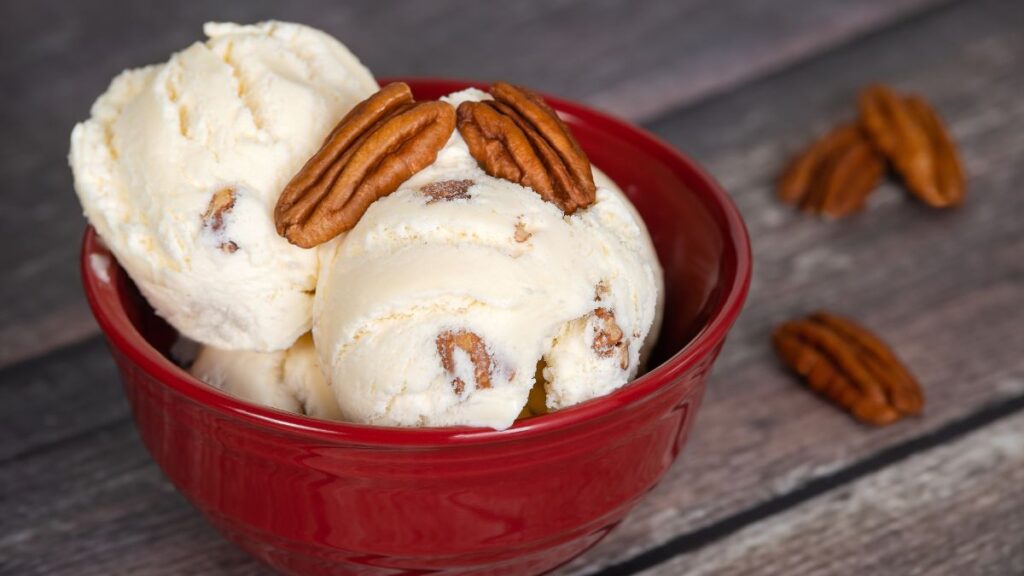
Ice cream is a popular treat but is often high in sugar, fat, and calories. Regularly indulging in ice cream can lead to weight gain and an increased risk of metabolic disorders. Frozen yogurt, fruit sorbets, or homemade ice cream with healthier ingredients can be better options.
Enjoying these treats in moderation helps manage your calorie intake and supports better overall health. Choosing lighter, homemade versions allows you to satisfy your sweet tooth without overloading on sugar and fat.
Eating Right With Type 2 Diabetes: Stay Away From These 15 Foods

Managing type 2 diabetes involves making careful food choices to keep your blood sugar levels stable. Some foods can cause your blood sugar to spike, making it harder to manage your diabetes.
Eating Right With Type 2 Diabetes: Stay Away From These 15 Foods
15 Foods That Are Becoming Too Expensive To Buy Due To Skyrocketing Prices

Food costs have been steadily rising in recent years, impacting households worldwide. Various factors, such as climate change, supply chain disruptions, and increased demand, have contributed to the soaring prices of many staple foods.
15 Foods That Are Becoming Too Expensive To Buy Due To Skyrocketing Prices







